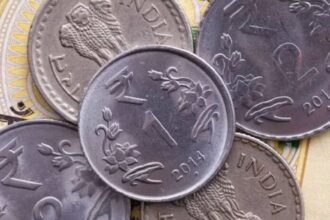Naira Rises by 2.5% as CBN Defends Local Currency with $60m
The naira gained about 2.4% week on week as the Central Bank of Nigeria (CBN) defended the local currency with $60 million in the official market. The exchange rate improved due to FX liquidity boost in the Nigerian autonomous foreign exchange market, supported by the CBN FX auction to banks.
The CBN intervened once, selling around $60 million at ₦1,540 to deposit money bank after the naira worsened to N1,660 on Thursday. Spot data from the FMDQ platform showed that the naira appreciated by 2.47% week-on-week, closing at ₦1,600.78 in the Nigerian autonomous foreign exchange window.
Amidst pressure in the local economy, external reserves maintained its upward trend, gaining US$206.16 million week on week to US$38.88 billion. Nigeria’s foreign reserves has recorded positive momentum for seven consecutive week of accretion partly due to FX purchases from Foreign Portfolio Investors (FPIs), Cordros Capital Limited said in a note.
Total turnover at the Nigerian autonomous forex market waned, down by 33.1% to USD1.22 billion on Thursday, investment firms said in separate reports. Analysts said trades were consummated within the N1,540 –N1,682 band during the period as naira continues to fall on the back of weak FX liquidity.
In the forwards market, the naira rates decreased across the 1-month contract, down by 1.5% to N1,699.15, 3-month dipped by -1.4% to N1,770.51, and 6-month depreciated by -0.4% to N1,862.89.
However, FX rate for one year forward contract appreciated by 0.9% to N2, 067.69. Exchange rate worsened further in the parallel market as demand and supply imbalance extended through the week in the currency market. Demand continues to overshadowed the volume of foreign currency available in the black market, and this shifted exchange rate above N1,700 per US dollar.
Analysts said seasonal demand for foreign currency could worsened spot rate in the informal currency market except the Apex Bank sells US dollar to Bureau de Change (BDC) operators in the alternative currency market that accommodates invisible FX payments.
“Barring any shock, we anticipate the naira will remain less volatile in the short term as the CBN maintains intervention in the FX market. This will also be supported by the improved FPI inflows into the FX market due to carry trade opportunities in the capital market”, analysts at Cordros Capital Limited said.
Based on data by the Nigerian Upstream Petroleum Regulatory Commission (NUPRC), Nigeria’s crude oil production (including condensates) declined by 1.7% to 1.54 million b/d in September from 1.57 mb/d after five consecutive months of increase.
Analysts attributed the decline in the period to lower production volume recorded across the Forcados, Akpo, Qua Iboe, Odudu and Escravos production terminals. Production volume from Forcados declined by 19% in September, Akpo dipped by 11.8% in the same period, and Qua Iboe supply fell by 7.8% while output from Odudu and Escravos terminals declined by 4.7% and 3.5%, respectively.
On the other hand, the Brass terminal production volume inched higher by +18.8% in September; Bonny output also increased by 11.3%, while output from Agbami terminal rose by 2.5% in the same period. Cordros Capital Limited states that overall crude oil production remains below pre-COVID levels of 2.14 million b/d in the first quarter of 2022.
The lower production is attributed to the lingering effects of insecurity and infrastructure decay, as well as low investment in the sector exacerbated by the exit of international oil companies (IOCs) and unresolved issues regarding the approval of oil asset transfers.
“While progress is still underway as regards the fight against crude oil theft and pipeline vandalism, we believe that challenges plaguing the sector still pose downside risks to crude oil production in the near term,” analysts said. Oil prices dropped by 7% amidst uncertainties in the global commodities market.
The price decline in the oil market was fueled by concerns over demand from a slowdown in Chinese economy growth and reduced supply risks from Middle Eastern conflicts. On Friday, Brent crude was priced at $73.55 per barrel, while WTI sat around $69.70.
Elsewhere, gold surged past the significant $2,700-per-ounce mark, reaching around $2,731.40, driven by rising tensions in the Middle East and uncertainty surrounding the U.S. elections. #Naira Rises by 2.5% as CBN Defends Local Currency with $60m
Money Market Rates Dip as Remita, Coupon Inflows Boost Liquidity






















